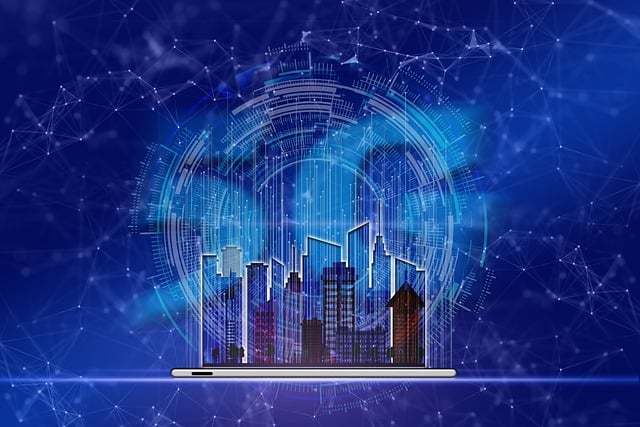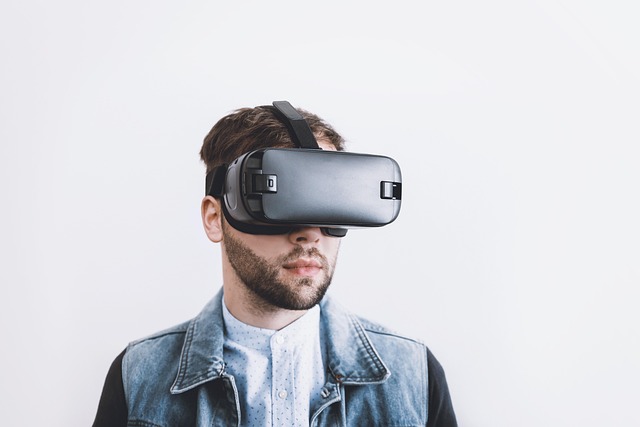Introduction
Are you ready for the future of smart cities? Brace yourself, because 5G technology is about to transform urban living in ways we’ve never seen before. Imagine living in a city where everything and everyone is connected at lightning-fast speeds, from self-driving cars to virtual reality classrooms. Thanks to 5G’s unprecedented connectivity and efficiency, the possibilities are endless.
In this blog post, we’ll explore how 5G will impact smart cities by examining its benefits, challenges, and alternatives. Get ready for an exciting ride into the future!
What is 5G?
5G is the latest generation of wireless technology that promises to revolutionize connectivity and communication. Unlike previous generations, 5G comes with unprecedented speed, capacity, and reliability that can handle a massive amount of data in real-time. This means that you can download an entire movie in just seconds or stream high-quality videos without buffering.
In addition to features, One of the key features of 5G is its low latency, which refers to the time it takes for devices to communicate with each other. With 5G’s ultra-low latency, there will be virtually no lag time between sending and receiving information. This makes it ideal for applications such as self-driving cars or remote surgery where even a millisecond delay could have dire consequences.
Further, Another notable feature of 5G is its ability to support a vast number of connected devices simultaneously. With IOT adoption on the rise across industries from healthcare to agriculture, this feature will enable more efficient operations and better use of resources.
Largely, 5G holds tremendous potential for improving connectivity and transforming various aspects of modern life by enabling new technological advancements we haven’t yet dreamed possible.
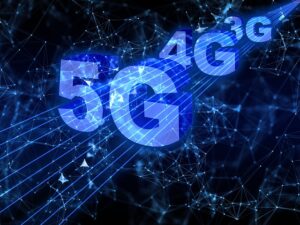
What are smart cities?
Smart cities are the future of urban living. They are cities that use cutting-edge technology to improve various aspects of life for their citizens, such as transportation, energy efficiency, public safety and more.
Further, In a smart city, sensors and devices are placed throughout the city to collect data about everything from traffic patterns to air quality. This data is then analyzed in real-time, allowing city officials to make informed decisions and implement changes quickly.
Moreover, One major goal of smart cities is sustainability. By using technology to optimize energy usage and reduce waste, smart cities can significantly reduce their carbon footprint.
Importantly, Smart cities also prioritize connectivity by offering high-speed internet access throughout the city. This allows residents to stay connected at all times and enables businesses to operate more efficiently.
However, The concept of a smart city revolves around improving quality of life through innovation and technological advancements. As this technology continues its rollout across the globe, we can expect even greater advancements in this field in the years ahead.

How will 5G impact smart cities?
The advent of 5G technology is set to change the future of smart cities in a significant way. With its lightning-fast download and upload speeds, low latency, and high capacity for data transfer, it will bring about new opportunities for innovation in various sectors.
Further, One area that stands to benefit from the implementation of this technology is transportation. Autonomous vehicles will be able to communicate with each other seamlessly through an ultra-reliable and low-latency network powered by this technology. This can help reduce traffic congestion in large cities, making commuting easier and more efficient.
Moreover, Another sector that will benefit immensely from 5G is healthcare. Remote patient monitoring systems can transmit real-time health information securely over a wireless connection without any lag time or disruption in service. This can help doctors make better-informed decisions on treatment options while reducing costs associated with frequent hospital visits.
However, The use of augmented reality (AR) and virtual reality (VR) applications in entertainment, education, gaming industries are also expected to grow substantially due to enhanced connectivity provided by 5G networks.
Furthermore, smart homes enabled by IoT devices like thermostats, security cameras, light bulbs have already become popular across the globe. The introduction of 5G-enabled devices will take this trend further allowing residents greater control over their home environment using voice commands or mobile apps.
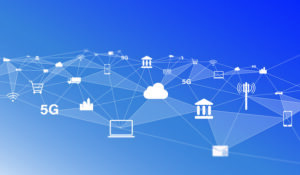
What benefits will 5G bring to smart cities?
The implementation of 5G technology in smart cities will bring about a plethora of benefits. First and foremost, it will improve connectivity between devices exponentially. With faster speeds and lower latency rates, data can be transferred with ease, allowing for real-time communication and decision-making. This improved connectivity will also lead to increased efficiency in various aspects of city life.
For example, transportation systems can become more streamlined with the ability to collect and analyze traffic data in real-time. This can help reduce congestion on roads while improving safety for drivers, passengers, and pedestrians alike.
Moreover, 5G-enabled smart grids can optimize energy usage by managing power distribution based on demand patterns. This means that power companies can save money while reducing their carbon footprint by avoiding unnecessary energy production during off-peak times.
In addition to these benefits, this technology has the potential to revolutionize healthcare services within cities through telemedicine capabilities. Doctors and nurses could remotely monitor patients’ health conditions via wearable devices or other IoT-enabled technologies without requiring them to travel long distances for follow-up appointments or consultations.
Implementing this technology in smart cities offers countless advantages that are sure to make urban living more efficient and sustainable than ever before.
The Challenges of Implementing 5G
The implementation of 5G technology in smart cities comes with its own set of challenges. One major challenge is the cost associated with building and maintaining a network that can support 5G speeds. The infrastructure required to provide reliable, high-speed connectivity across an entire city requires significant investment.
Moreover, the deployment of 5G networks also poses environmental concerns due to the installation of new hardware and equipment necessary for provisioning faster wireless connections. This could result in increased energy consumption and e-waste generation if not managed properly.
Importantly, Another challenge is ensuring security and privacy on these networks, as greater bandwidth means more data exchange. With more devices connected at once, there is a higher risk of hacking or other cyber threats that could compromise sensitive information shared over 5G networks.
Unfortunately, regulatory issues may arise regarding how frequencies are allocated among different operators for their respective coverage areas. This process must be efficient enough to avoid monopolies while still providing equitable access across various regions without causing interference between overlapping frequency bands.
As such, addressing these challenges will require coordination among governments, telecommunication companies, urban planners, environmentalists and security experts alike to ensure that the benefits of implementing 5G outweigh any potential negative effects it might have on smart cities.

How will 5G change urban living?
5G is set to revolutionize urban living as we know it. With its ultra-fast speeds, low latency and massive connectivity, this technology will allow for seamless integration of smart technology in our cities.
Further, One major impact that this technology will have on urban living is the ability for people to work from anywhere in the city. With 5G-enabled devices, individuals can easily access high-speed internet without needing a wired connection. This means that professionals can work remotely from parks or coffee shops across the city.
Moreover, with 5G-enabled smart transportation systems in place, commuting time will significantly decrease. Smart traffic lights and sensors installed throughout cities will communicate real-time information about traffic patterns and suggest alternative routes to avoid congestion.
Another benefit of having a fully integrated 5G network in cities is increased public safety measures. Police officers and first responders will be able to use wearable tech to stay connected at all times for rapid response during emergencies.
However, It’s clear that 5G has immense potential when it comes to changing how we live our lives within urban environments. Whether through greater flexibility with remote work options or faster commute times thanks to smarter transportation infrastructure – there are countless ways in which this new technology could shape our future experiences within modern cities.

What are the Pros and Cons of 5G in Smart Cities?
5G is expected to have a significant impact on smart cities, bringing faster and more reliable connectivity that can improve the way we live. However, there are also some potential downsides that need to be considered.
In addition to pros, One of the main advantages of this technology in smart cities is its ability to support large numbers of connected devices. This means that everything from traffic lights and public transportation systems to homes and businesses can be interconnected, improving efficiency and reducing waste.
Further, Another benefit of this technology is its speed. With data transfer rates up to 100 times faster than existing networks, it will be possible for smart city applications such as autonomous vehicles or remote healthcare services to function smoothly with minimal latency issues.
However, there are also concerns about the potential health risks associated with exposure to high-frequency electromagnetic radiation emitted by 5G networks. While studies on this topic are ongoing, some experts warn that long-term exposure could increase cancer risk or other health problems.
Additionally, implementing a widespread 5G network will require significant investment in infrastructure upgrades which may lead to higher costs for consumers or taxpayers. There is also concern over privacy issues related to the increased collection of personal data by these interconnected systems.
Moreover, It’s clear that while there are many benefits associated with 5G technology in smart cities, careful consideration should be given before implementation takes place so as not compromise safety and privacy concerns.
Alternatives to 5G in Smart Cities
While 5G technology is expected to revolutionize the way we live in smart cities, there are alternatives that can also be considered. One such alternative is Wi-Fi 6, which offers faster speeds and increased bandwidth compared to its predecessor.
Another option is the use of low-power wide-area networks (LPWANs), which provide long-range connectivity for devices with low data usage requirements. LPWANs have lower power consumption and cost less than traditional cellular networks but may not offer the same level of speed and coverage as 5G.
Furthermore, some experts suggest utilizing existing infrastructure like fiber-optic cables or upgrading current wireless technologies like 4G LTE rather than investing in a new network altogether. This approach may be more cost-effective while still providing significant improvements to connectivity and efficiency in smart cities.
However, It is important to note that these alternatives come with their own set of challenges and limitations. The choice ultimately depends on the specific needs and goals of each smart city project. Nonetheless, exploring different options beyond 5G can lead to innovative solutions for creating smarter cities around the world.
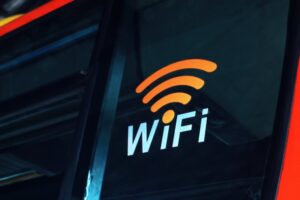
FAQs
Here are some of the most popular questions asked about 5G Technology and its impact on smart cities.
Q: What is 5G technology?
A: 5G technology or fifth-generation wireless technology, is the latest iteration of mobile networks which promises faster download and upload speeds, lower latency, and better connectivity for internet-connected devices.
Q: What are smart cities?
A: Smart Cities integrate advanced technologies such as IoT sensors, data analytics, AI algorithms, etc., to improve quality of life for citizens by optimizing city services like transportation systems, energy management systems and public safety measures.
Q: How will 5G impact smart cities?
A: With its high-speed data transmission capabilities and low latency rates, 5G will enable seamless communication between various devices in a smart city ecosystem. This means that everything from traffic lights to emergency response units can communicate with each other in real time leading to increased efficiency and reduced congestion.
Q: Will all countries adopt 5G technology in their smart city plans?
A: While many developed nations have already started rolling out 5G networks as part of their efforts towards building smarter cities there still lies a long road ahead before every country adopts this new-age infrastructure completely.
With these FAQs answered we can see how implementing this revolutionary form of wireless network has become an integral part of modernizing our urban habitats.
Conclusion
5G technology is set to revolutionize the way we live, work and interact with our surroundings. With its blazing speed and reliability, 5G has the potential to transform smart cities into truly connected and efficient urban centers.
As I have mentioned and explained in this article, 5G will have a significant impact on smart cities by enabling faster data transfer rates, reducing latency, enhancing connectivity and increasing efficiency across various industries such as transportation, healthcare and energy management.
However, Despite the challenges that lie ahead in implementing this new technology across entire cities, there is no doubt that it will change urban living for the better. Its benefits far outweigh any potential downsides or alternatives. It’s time for city planners to embrace this new era of technological advancement and prepare their communities for a smarter tomorrow.
